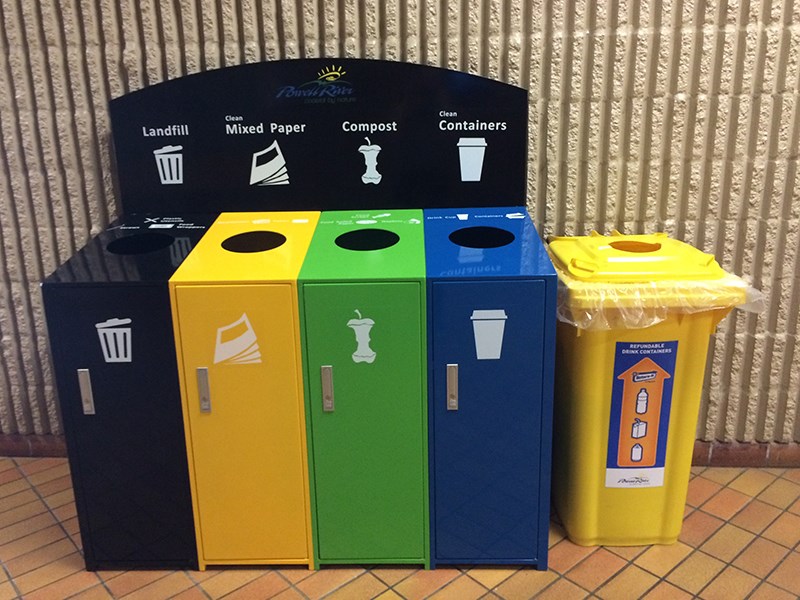The bigger your recycling bin the better, right?
Well, don’t congratulate yourself too much when you tote a full bin to the recycling depot. To stop a flooding bathtub, we turn off the tap rather than grab a bailer. So, the real gift to the planet is to reduce our use of its resources in the first place.
Another challenge with a full bin is that it may contain wishful recyclables. You know, those items you aren’t quite sure about, but toss them in because you figure it’s better than landfilling.
Unfortunately, that’s not how the recycling industry views things. Anything other than items on the accepted list of materials is considered contamination, and that can mean entire loads of recyclables being turned away.
China has been making news in the past few years for exactly this reason, banning 24 types of materials previously accepted for processing. And with 40 per cent of North American recyclables formerly headed to China, the effect is being felt.
All across the globe contamination happens when there is consumer confusion at recycling sorting stations. Inconsistent labelling frustrates would-be recyclers. Interesting that we have international standards for road signs, but not for waste management.
Seeing a need, a non-profit called Recycle Across the World is trying to address this by dedicating itself to creating the world’s first and only society-wide standardized labelling system for recycling bins.
In the meantime, it is our job to becomes familiar with the ins and outs of our local systems. New recycling sorting bins have come to Powell River Recreation Complex, allowing Powell River residents to divert compostables, paper, refundables and containers from the landfill. Note that napkins and food-soiled paper like containers for french fries go in the compost bin, and straws are still considered garbage.
Changes are also coming at Augusta Recyclers, starting October 1, to reflect a new bylaw that is going to assist with proper sorting of our waste. Construction and demolition waste (CD) will be limited to construction, demolition and renovation material only. Household garbage will include waste coming from residences and businesses such household furniture, mattresses and other bulky items that had historically been going into the CD pile. As always, hazardous waste requires special handling.
Recyclables do not sort themselves; we need to get involved. When in doubt about whether to include something, it’s better to keep it out than create potential contamination. Check with depot staff or the Let’s Talk Trash team, who are always available to help you sort it out.
Let’s Talk Trash is qathet Regional District’s waste-reduction education program.



